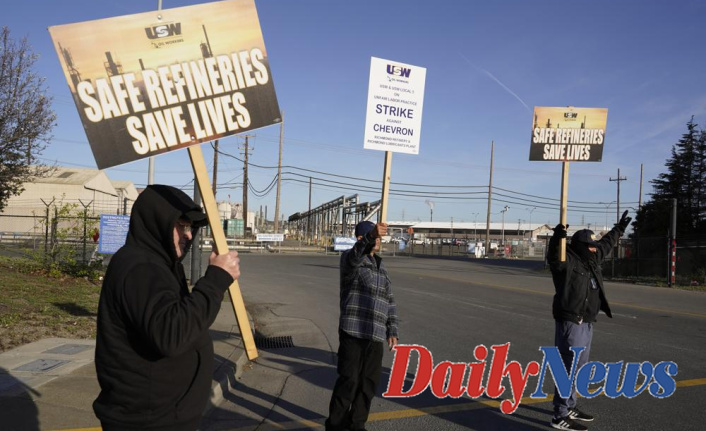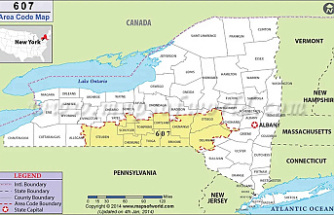They also demanded a raise in their salaries to keep up to date with inflation and the high cost of living.
At 12:01 AM, the strike that affected the Richmond refinery began. The strike began after workers rejected Chevron's latest contract offer, and the company refused a return to the bargaining table.
Chevron stated in a statement on Sunday night that it had been working with the union for several months and believed the contract the company offered was fair and addressed the union's concerns.
Although the union claimed it had reached a national agreement with oil workers regarding wages and working conditions for them, approximately 200 bargaining units had to still negotiate local issues.
B.K. is the representative of USW Local 5. White, a former refinery operator, claimed that Chevron did not address worker fatigue or a shortage of staffing. He has been working for the company for over 29 years.
"If there were more people, and a higher pay rate, perhaps our members wouldn’t feel so obligated to work 70 hours per week just to make ends meet," White said. White stated that they don't think this is safe.
Chevron stated that Richmond's demands exceeded what it considers reasonable and went beyond what was stipulated in the national pattern bargaining arrangement.
White stated that the company offered a 2.5% increase in pay, but that the union wanted 5% to keep up the cost of living and inflation in the Bay Area.
White stated that it was difficult for blue-collar workers in the Bay Area. He requested a 5% increase to help with Kaiser's medical costs, which rose 23% last year.
White stated that the company has already hired about 100 workers to replace those who were not qualified to manage the plants.
He stated, "This is to the detriment city of Richmond as well as the environment."
According to the company, qualified replacements were hired starting Sunday night shift.
Chevron spokesperson Tyler Kruzich stated in an email that "the employees operating the refinery during strike have met the required requirements to perform their jobs (including on-the-job training by experienced employees/operators), so that the refinery can be operated safely and in compliance all applicable laws."
The strike could cause the refinery to close down, which would negatively impact gasoline prices in California, which has the highest average regular gas price in America at $5.86 per gallons, according to American Automobile Association.
Ken Medlock, the director of the Center for Energy Studies at Rice University’s Baker Institute, stated that it was unlikely that the strike would force Chevron to close down its operations or raise prices.
Medlock stated in an email that "it is more likely that it will run with the'skeleton crew" until the labor contract issues are resolved."
He said that California prices are already higher that other states because of the unique blend that must sold in California. This limits arbitrage of gasoline imported from other regions. There is plenty incentive to keep the refinery operating."
According to the union, workers were reporting to work on a rolling 24-hour extension. The contract with Chevron in Richmond was over by Feb. 1.
Chevron, a San Ramon-based company, stated on its website that the refinery employs 1300 workers. White stated that the union includes about 600 workers who include pipefitters and machinists as well as lab technicians, warehouse workers, and pipefitters.
It is the largest state refinery and produces about 240,000 barrels per day of crude oil to make gasoline, diesel, and jet fuel. The refinery also processes lubricating oils. These products are mainly sold in California.
Chevron stated in a statement that it was "fully prepared" to continue normal operations despite the strike.
It stated that it anticipated no problems in maintaining a reliable supply to the market.












